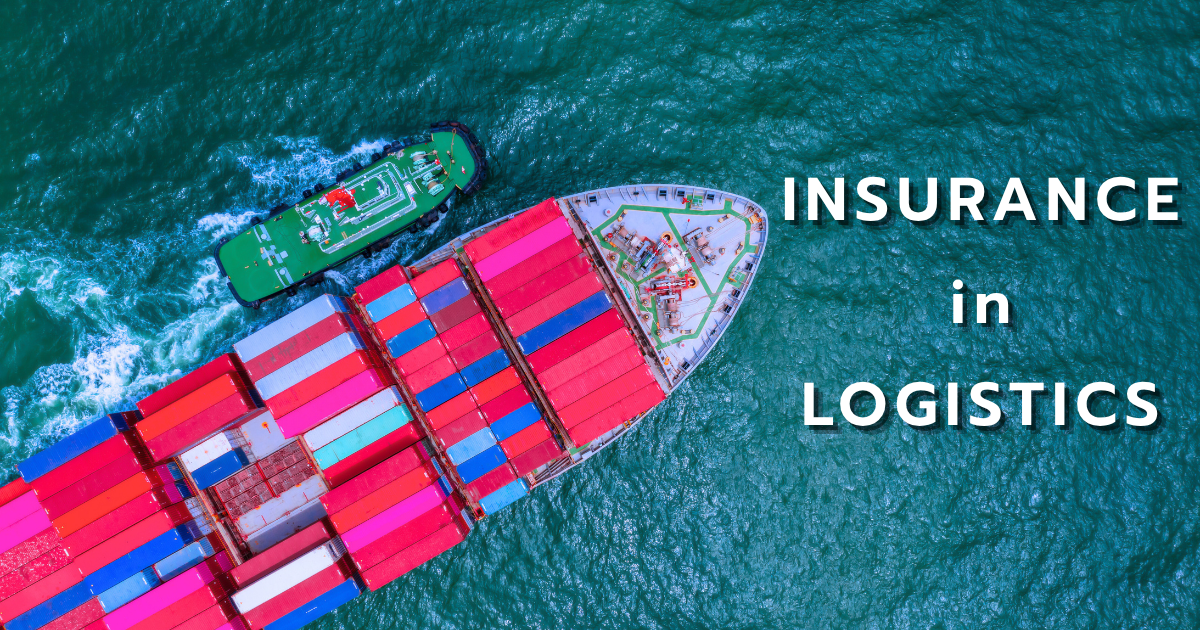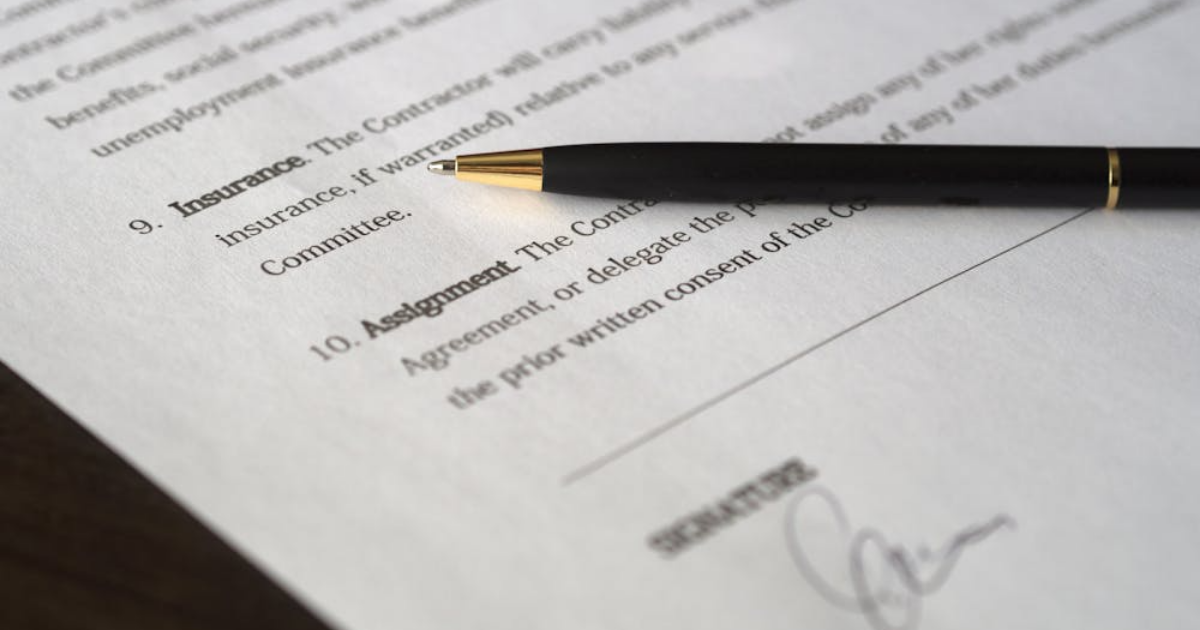What is Logistics Insurance?
Every shipment, no matter how carefully handled, carries an element of risk. Goods can be damaged during loading, misplaced in transit, or delayed by unforeseen events. For example : Thai importers and exporters, even a single loss can lead to significant financial and operational setbacks. This is where Logistics Insurance becomes indispensable.
Understanding how Logistics Insurance works can help businesses operate with confidence and protect their investments every step of the way.
Contact usTable of Content
Definition of Logistics Insurance
Key Benefits of having Logistics Insurance
Common Risks in Global Shipping
Key Coverage Conditions in Logistics Insurance
Conclusion

Definition of Logistics Insurance and How Does It Work?
Logistics Insurance is a specialized form of coverage designed to protect goods while they are in transit. Unlike general business insurance, it focuses exclusively on the risks associated with the movement of cargo. Whether shipments travel across the sea, through the air, or overland, this insurance ensures that any loss or damage during transportation is financially compensated.
Typically, Logistics Insurance works through a simple yet structured process. Before shipping, the cargo owner declares the value and nature of the goods to the insurer or logistics provider. A policy is then issued, outlining the terms of coverage, exclusions, and claim procedures. Once the shipment is underway, the goods are protected until they reach the final delivery point.
Coverage can include incidents such as:
-
Damage from rough handling or collisions.
-
Theft, loss, or container misplacement.
-
Fire, natural disasters, or severe weather conditions.
-
Accidents during loading or unloading.
When an unfortunate event occurs, the shipper files a claim supported by documents like invoices, bills of lading, or photos of the damage. After verification, compensation is provided according to the insured value.
Import from china to THAILAND + Vats
Key Benefits of Having Logistics Insurance
The true value of Logistics Insurance lies not only in financial reimbursement but also in the sense of security it provides throughout the supply chain. In international trade, where shipments pass through multiple hands and unpredictable environments, insurance serves as the invisible shield that keeps businesses operating with confidence.
1. Financial Protection Against Loss or Damage
Even a single damaged container or lost shipment can result in serious financial loss. Logistics Insurance ensures that any unexpected incident whether a warehouse fire, storm damage, or theft doesn’t directly impact a company’s cash flow.
2. Peace of Mind for Businesses and Clients
Knowing that every shipment is insured allows importers, exporters, and their clients to focus on core operations. It eliminates uncertainty and promotes a stronger sense of reliability between all parties involved.
3. Builds Credibility and Trust
Companies that insure their shipments demonstrate professionalism and responsibility. It assures partners and customers that risk management is taken seriously, reinforcing brand reputation in competitive markets.
4. Maintains Business Continuity
Without insurance, a single large-scale loss can disrupt business operations or delay customer deliveries. Logistics Insurance minimizes these risks by providing fast compensation, allowing companies to recover and resume operations smoothly.
5. Compliance with Partner or Trade Requirements
Many international buyers and freight forwarders require proof of insurance before shipment. Having coverage ensures compliance with global standards and contract terms.

Common Risks in Global Shipping Without Insurance
While global logistics has become faster and more efficient, it remains exposed to a range of unpredictable risks. Without Logistics Insurance, even the most carefully managed shipment can face problems that lead to costly losses. From harsh weather conditions to human error, every stage of transportation carries potential hazards that can disrupt delivery or damage goods.
One of the most common risks is physical damage caused by rough handling, improper stacking, or accidents during loading and unloading. Containers can be dropped, crushed, or exposed to moisture—especially in sea freight. Even minor impacts can ruin sensitive products such as electronics or glassware.
In maritime transport, shippers also face the principle of General Average, which states that if a vessel encounters an emergency and cargo is jettisoned to save the ship, all cargo owners share the total loss even if their goods were undamaged. Without Logistics Insurance, businesses may be required to pay large contributions before their cargo is released.
Beyond these physical risks, delays due to weather, strikes, customs inspections, or political unrest can also cause losses, especially for perishable goods or time-sensitive deliveries.
Coordinator IMPORT OEM product

Key Coverage Conditions in Logistics Insurance
Most logistics insurance policies cover goods “from warehouse to warehouse,” meaning protection starts when cargo leaves the supplier’s facility and continues until it reaches its final destination. However, this coverage may vary depending on the transport method and policy type.
Common types of coverage include:
- All-Risk Coverage:
Provides broad protection against physical loss or damage from external causes, such as theft, collision, or natural disasters. It’s the most comprehensive form but usually costs more. - Named Perils Coverage:
Covers only specific risks mentioned in the policy (e.g., fire, explosion, or sinking). It’s cheaper but limited in scope. - Total Loss Coverage:
Applies when the entire shipment is lost or destroyed. Partial damages are not included.
It’s also important to note that certain exclusions may apply, such as inadequate packaging, inherent product defects, or delays caused by customs or political unrest. Businesses should review these details carefully with their insurer or logistics provider
More Article from us
Conclusion
In today’s global trade environment, Logistics Insurance is more than an optional safeguard—it’s a critical part of responsible shipping. No matter how reliable a carrier or how careful the handling, unforeseen risks like damage, loss, or delays can occur at any time. Proper insurance coverage ensures financial stability and business continuity, protecting both goods and reputation. By understanding the coverage terms and choosing the right policy, businesses can operate with confidence and reduce uncertainty across every shipment.
At JIN GLOBAL LOGISTICS, we go beyond transport. Our All Solutions Logistics Service includes complete shipment protection, customs clearance, and real-time tracking to ensure your cargo reaches safely and securely. With Our Company, every shipment moves with trust, transparency.












